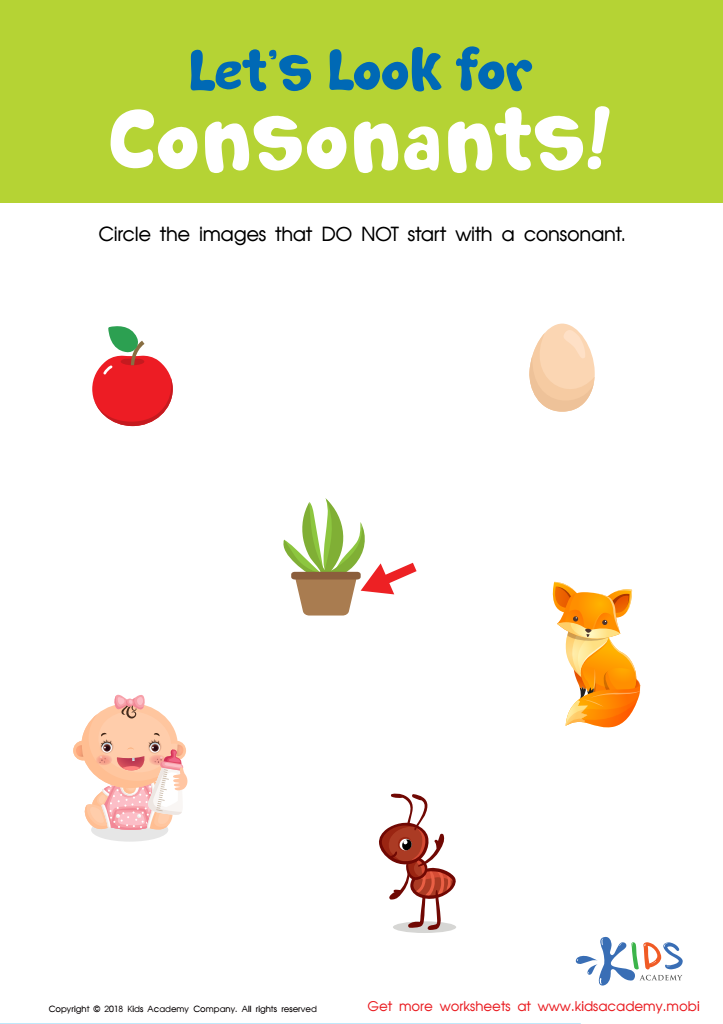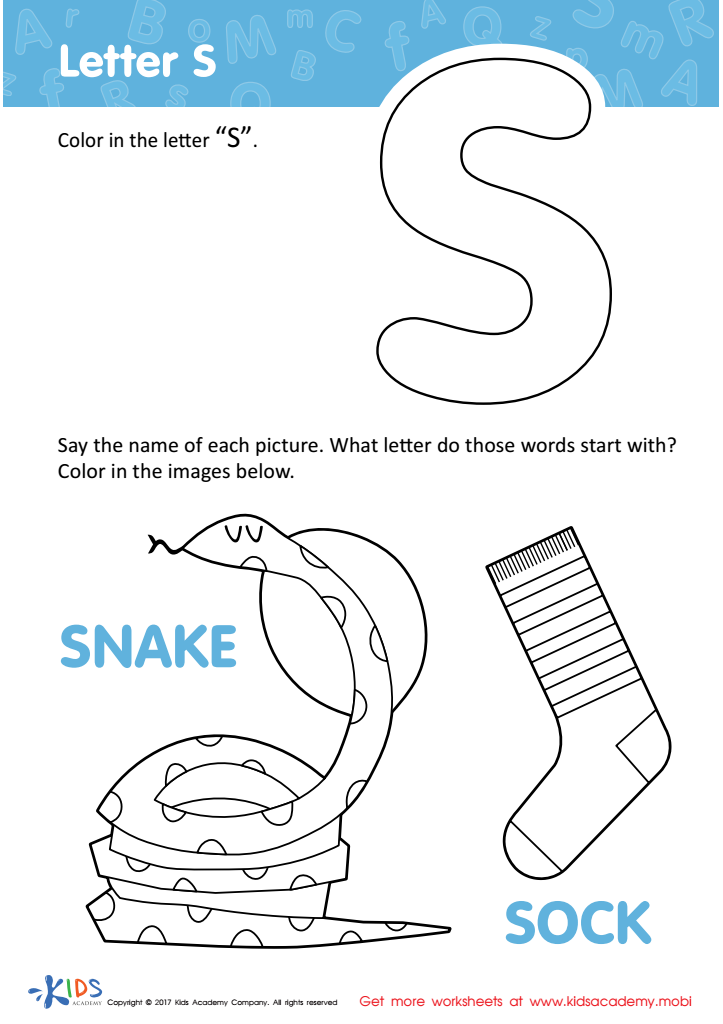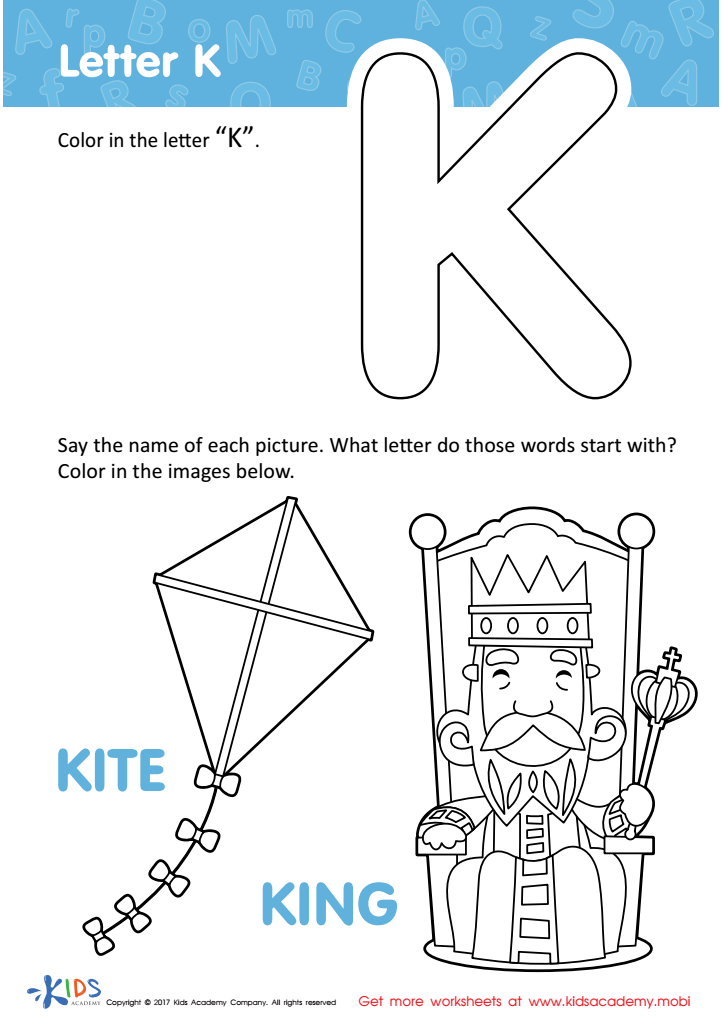Phonics enhancement Alphabet Worksheets for Ages 4-5
3 filtered results
-
From - To
Introduce your child to the wonders of reading with our Phonics Enhancement Alphabet Worksheets designed specifically for ages 4-5! These engaging, colorful worksheets make learning fun while helping young learners develop essential phonetic skills. Each activity focuses on letter recognition, sounds, and blending techniques, ensuring your child builds a strong foundation in literacy. Ideal for classroom or home use, these worksheets encourage creativity and critical thinking through interactive exercises. Support your child's journey to reading readiness with our expertly designed phonics resources, tailored to ignite a passion for learning and enhance early language development. Explore the joy of learning today!


Let's Look for Consonants Worksheet


Letter S Coloring Sheet


Letter K Coloring Sheet
Phonics enhancement for ages 4-5 is crucial for laying a strong foundation in literacy development. At this early stage, children's brains are rapidly developing, making them particularly receptive to learning language and sounds. Phonics instruction helps children understand the relationship between letters and sounds, enabling them to decode words effectively. When parents and teachers prioritize phonics, they create an engaging environment that fosters confidence in reading and writing skills.
Early mastery of phonics facilitates a smoother transition into more complex reading materials, setting students up for future academic success. It also enhances vocabulary acquisition and comprehension, as children begin to explore simple texts independently. By enhancing phonics skills, parents and teachers encourage a love of reading, which can lead to lifelong learning and curiosity.
Moreover, phonics can also support children who may struggle with traditional approaches to reading. By providing targeted phonics instruction, educators can address individual learning needs, ensuring that all children are equipped with essential literacy skills. In essence, actively focusing on phonics helps nurture a child's cognitive and linguistic abilities, empowering them to thrive in their educational journey and beyond. This early commitment to phonics ultimately supports overall school readiness and long-term academic achievement.

 Assign to My Students
Assign to My Students













